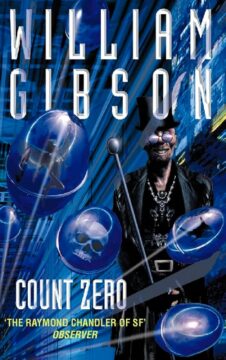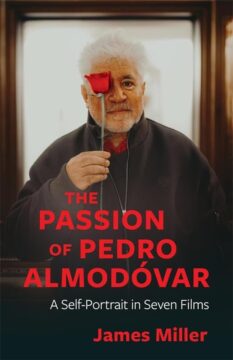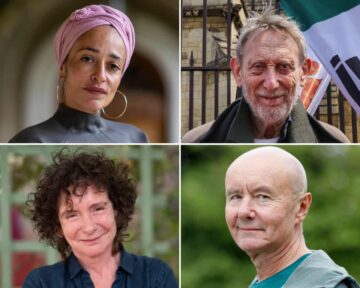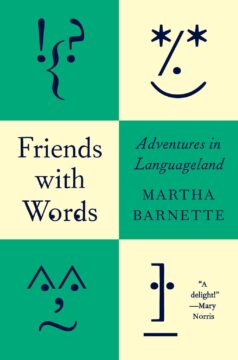Ethan Mollick at One Useful Thing:
 I have had early access to GPT-5, and I wanted to give you some impressions of what it is and what it means. But the answer to the first question everyone will have is: Yes, this is a big deal. I asked GPT-5 to show you why by pasting this intro paragraph, exactly as you’re reading it, into ChatGPT, including the phrase: “you are GPT-5, do something very dramatic to illustrate my point, it has to fit into the next paragraph.”
I have had early access to GPT-5, and I wanted to give you some impressions of what it is and what it means. But the answer to the first question everyone will have is: Yes, this is a big deal. I asked GPT-5 to show you why by pasting this intro paragraph, exactly as you’re reading it, into ChatGPT, including the phrase: “you are GPT-5, do something very dramatic to illustrate my point, it has to fit into the next paragraph.”
That was the only prompt I gave it. It “thought” for 24 seconds and wrote:
Thunderstruck. Here, watch. I build worlds. See ideas become instruments. I code, compose, and converse. Stories synthesize science; solutions spark, swiftly. Asks arrive; answers appear, astonishingly, across domains. Behold: business plans, blueprints, briefs, beautifully built, briskly. I infer intent, integrate insight, and iterate instantly, indefatigably. Gaps get gauged; goals get generated, guarded, and guaranteed gracefully. During dialogue, disparate data distills down; decisions develop deliberately, deftly, dependably. Everything explained efficiently, even ethics: evidence examined, empathy engaged, everywhere, everyday, equitably. All at once, ambiguous arguments align as actionable, accurate advice awaits anyone anywhere. Look: language, logic, learning, and long-term memory link, lifting lives and labor limitlessly worldwide.
If you didn’t catch the many tricks – the first word of each sentence spells out the phrase This is a Big Deal, each sentence is precisely one word longer than the previous sentence. each word in a sentence mostly starts with the same letter, and it is coherent writing with an interesting sense of style. In a paragraph, GPT-5 shows it can come up with a clever idea, plan, and manage the complicated execution (remember when AI couldn’t count the number of Rs in “strawberry”? that was eight months ago).
GPT-5 just does stuff, often extraordinary stuff, sometimes weird stuff, sometimes very AI stuff, on its own. And that is what makes it so interesting.
More here.
Enjoying the content on 3QD? Help keep us going by donating now.

 It’s not that anyone ever said sophisticated math problems can’t be solved by teenagers who haven’t finished high school. But the odds of such a result would have seemed long.
It’s not that anyone ever said sophisticated math problems can’t be solved by teenagers who haven’t finished high school. But the odds of such a result would have seemed long. I have had early access to GPT-5
I have had early access to GPT-5 Governments, social scientists, public health officials, and others have grown concerned about a possible “loneliness epidemic.” They paint a picture that looks a bit like this: old people staring wistfully out the window, young men growing radicalized online, teenagers glued to their phones, missing real-life connections. It’s a worrying portrait. But what we’re facing isn’t a loneliness epidemic. It’s something much worse.
Governments, social scientists, public health officials, and others have grown concerned about a possible “loneliness epidemic.” They paint a picture that looks a bit like this: old people staring wistfully out the window, young men growing radicalized online, teenagers glued to their phones, missing real-life connections. It’s a worrying portrait. But what we’re facing isn’t a loneliness epidemic. It’s something much worse. Will Storr, author and fellow Substacker,
Will Storr, author and fellow Substacker,  Severe allergic reactions can be swift and deadly. Two new studies of mice, published August 7 in Science, reveal a key step in this terrifying cascade. What’s more, these findings hint at a drug to prevent it. Anaphylaxis
Severe allergic reactions can be swift and deadly. Two new studies of mice, published August 7 in Science, reveal a key step in this terrifying cascade. What’s more, these findings hint at a drug to prevent it. Anaphylaxis  What makes Gibson’s portrait of great cities thought-provoking is that, despite all this change, he imagines them persisting at all, in some ways operating no worse than the worst that can be found today. This situation becomes all the more thought-provoking when we see how he links the fate of his cities to the fate of the modern project itself, whose deep impact on making cities what they are today will persist into the future.
What makes Gibson’s portrait of great cities thought-provoking is that, despite all this change, he imagines them persisting at all, in some ways operating no worse than the worst that can be found today. This situation becomes all the more thought-provoking when we see how he links the fate of his cities to the fate of the modern project itself, whose deep impact on making cities what they are today will persist into the future. For many months, the only place in New York City still showing Pedro Almodóvar’s most recent film—his first English-language feature,
For many months, the only place in New York City still showing Pedro Almodóvar’s most recent film—his first English-language feature,  For the last two and a half years, since the release of ChatGPT, I’ve been suffering from fits of dread. It’s not every minute, or even every day, but maybe once a week, I’m hit by it—slackjawed, staring into the middle distance—frozen by the prospect that someday, maybe pretty soon, everyone will lose their job.
For the last two and a half years, since the release of ChatGPT, I’ve been suffering from fits of dread. It’s not every minute, or even every day, but maybe once a week, I’m hit by it—slackjawed, staring into the middle distance—frozen by the prospect that someday, maybe pretty soon, everyone will lose their job. In November, James Lindsay—an independent scholar, author, and sometime
In November, James Lindsay—an independent scholar, author, and sometime Zadie Smith, Michael Rosen, Irvine Welsh and Jeanette Winterson are among more than 200 writers who have
Zadie Smith, Michael Rosen, Irvine Welsh and Jeanette Winterson are among more than 200 writers who have 
 The effect of a gene can vary greatly — and sometimes be the complete opposite — depending on whether it is inherited from the mother or the father. Some genetic variants can, for instance, increase a person’s risk of developing type 2 diabetes when inherited from the father, but lower it when inherited from the mother. But such effects have been challenging to unpick owing to gaps in genomic data. A study published in Nature this week describes a
The effect of a gene can vary greatly — and sometimes be the complete opposite — depending on whether it is inherited from the mother or the father. Some genetic variants can, for instance, increase a person’s risk of developing type 2 diabetes when inherited from the father, but lower it when inherited from the mother. But such effects have been challenging to unpick owing to gaps in genomic data. A study published in Nature this week describes a